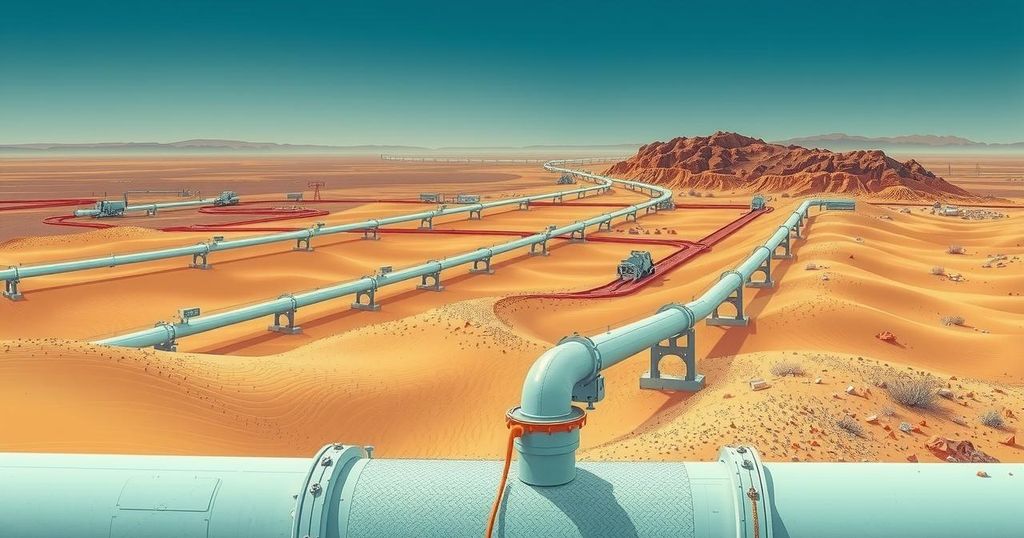Iraq is exploring alternatives to Iranian gas imports due to sanctions on Iran. The government is considering partnerships with Gulf countries and establishing liquefied natural gas terminals to enhance energy security. Ongoing power shortages and dependency on Iranian gas underline the urgency of achieving energy independence.
Iraq is actively seeking alternatives to Iranian gas imports due to sanctions impacting Iran’s economy. A government official indicated that Iraq is exploring options from Gulf nations to decrease reliance on Iranian supplies. The US has recently canceled a sanctions waiver enabling Iraq to acquire electricity from Iran but has not prohibited gas imports thus far.
Iran currently provides one-third of Iraq’s total energy needs, and government officials like Saad Jassem from the electricity ministry are emphasizing the need for diversification of import sources. While Iranian gas imports have not ceased, ongoing tensions between the US and Iran have prompted the necessity to identify alternative sources swiftly.
Jassem noted, “We must consider the worst-case scenario — if there is an interruption, we have prepared alternatives.” He reported that Qatar, the largest natural gas producer in the region, is willing to assist Iraq with preferential pricing, and Oman is also being considered as a potential partner. Furthermore, discussions are ongoing with Turkmenistan for gas delivery through pipelines that traverse Iran.
To bolster its gas supply, Iraq is establishing two floating liquefied natural gas terminals in Khor al-Zubair, anticipated to operate by June and capable of processing between 14 to 19 million cubic meters of gas daily. Jassem mentioned that a third facility could further increase this capacity significantly.
The energy situation remains critical for Iraq’s citizens, as gas shortages directly affect electricity availability. Prime Minister Mohammed Shia al-Sudani’s administration aims for self-sufficiency by curbing gas flaring by 2028, thus utilizing that gas for power generation instead.
Despite previous agreements, recent fluctuations in Iranian gas supply due to payment issues and increased domestic demand have highlighted Iraq’s vulnerability to energy shortages. The challenges remain as Iraq seeks to maintain a balance in its relations with both Iran and the United States while addressing the power needs of its 46 million inhabitants.
Iraq is prioritizing the diversification of its gas import sources in light of external pressures from sanctions on Iran. Government officials are undertaking measures to establish alternative supply agreements with Gulf countries, such as Qatar and Oman, as well as Turkmenistan. The construction of liquefied natural gas terminals aims to address energy shortages, with a broader goal of achieving energy independence by 2028. However, challenges regarding Iranian gas supply and power outages continue to persist, necessitating a multi-faceted approach to energy security.
Original Source: www.wyomingnewsnow.tv




